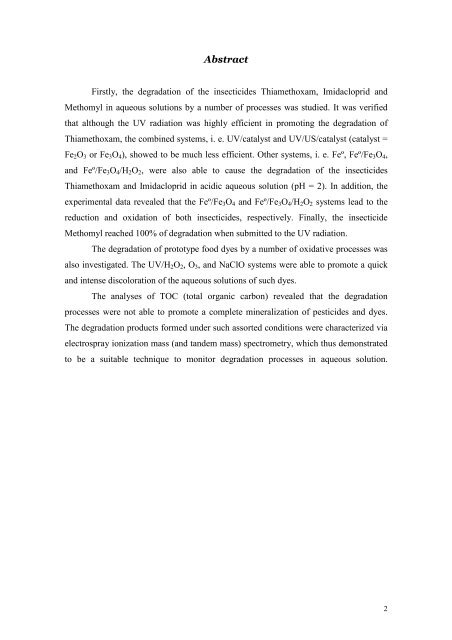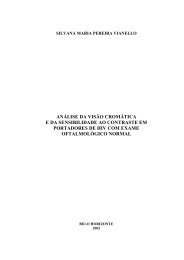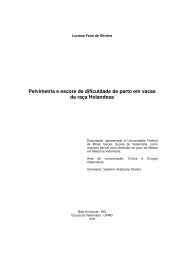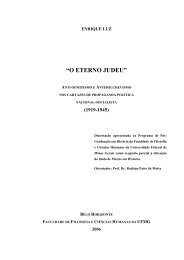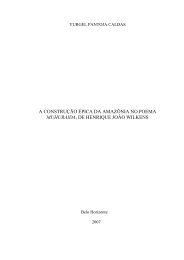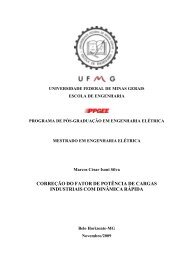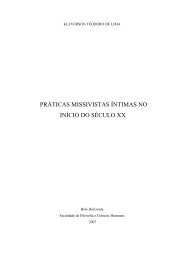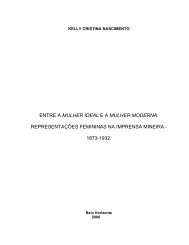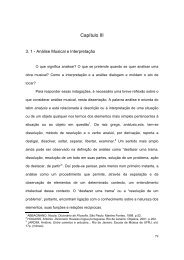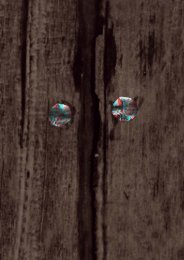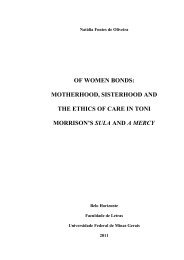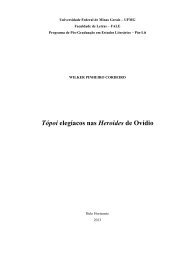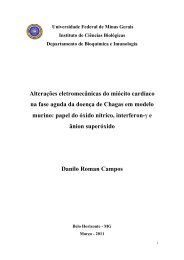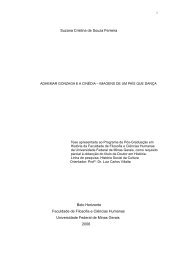Degradação de Substâncias de Relevância Ambiental por ...
Degradação de Substâncias de Relevância Ambiental por ...
Degradação de Substâncias de Relevância Ambiental por ...
You also want an ePaper? Increase the reach of your titles
YUMPU automatically turns print PDFs into web optimized ePapers that Google loves.
Abstract<br />
Firstly, the <strong>de</strong>gradation of the insectici<strong>de</strong>s Thiamethoxam, Imidacloprid and<br />
Methomyl in aqueous solutions by a number of processes was studied. It was verified<br />
that although the UV radiation was highly efficient in promoting the <strong>de</strong>gradation of<br />
Thiamethoxam, the combined systems, i. e. UV/catalyst and UV/US/catalyst (catalyst =<br />
Fe2O3 or Fe3O4), showed to be much less efficient. Other systems, i. e. Feº, Feº/Fe3O4,<br />
and Feº/Fe3O4/H2O2, were also able to cause the <strong>de</strong>gradation of the insectici<strong>de</strong>s<br />
Thiamethoxam and Imidacloprid in acidic aqueous solution (pH = 2). In addition, the<br />
experimental data revealed that the Feº/Fe3O4 and Feº/Fe3O4/H2O2 systems lead to the<br />
reduction and oxidation of both insectici<strong>de</strong>s, respectively. Finally, the insectici<strong>de</strong><br />
Methomyl reached 100% of <strong>de</strong>gradation when submitted to the UV radiation.<br />
The <strong>de</strong>gradation of prototype food dyes by a number of oxidative processes was<br />
also investigated. The UV/H2O2, O3, and NaClO systems were able to promote a quick<br />
and intense discoloration of the aqueous solutions of such dyes.<br />
The analyses of TOC (total organic carbon) revealed that the <strong>de</strong>gradation<br />
processes were not able to promote a complete mineralization of pestici<strong>de</strong>s and dyes.<br />
The <strong>de</strong>gradation products formed un<strong>de</strong>r such assorted conditions were characterized via<br />
electrospray ionization mass (and tan<strong>de</strong>m mass) spectrometry, which thus <strong>de</strong>monstrated<br />
to be a suitable technique to monitor <strong>de</strong>gradation processes in aqueous solution.<br />
2


